'My happy place has been ripped away': Jen George on why she no longer feels safe on her local roads
The champion road racer turned time triallist recounts the traumatic events that have taken away her freedom to train alone
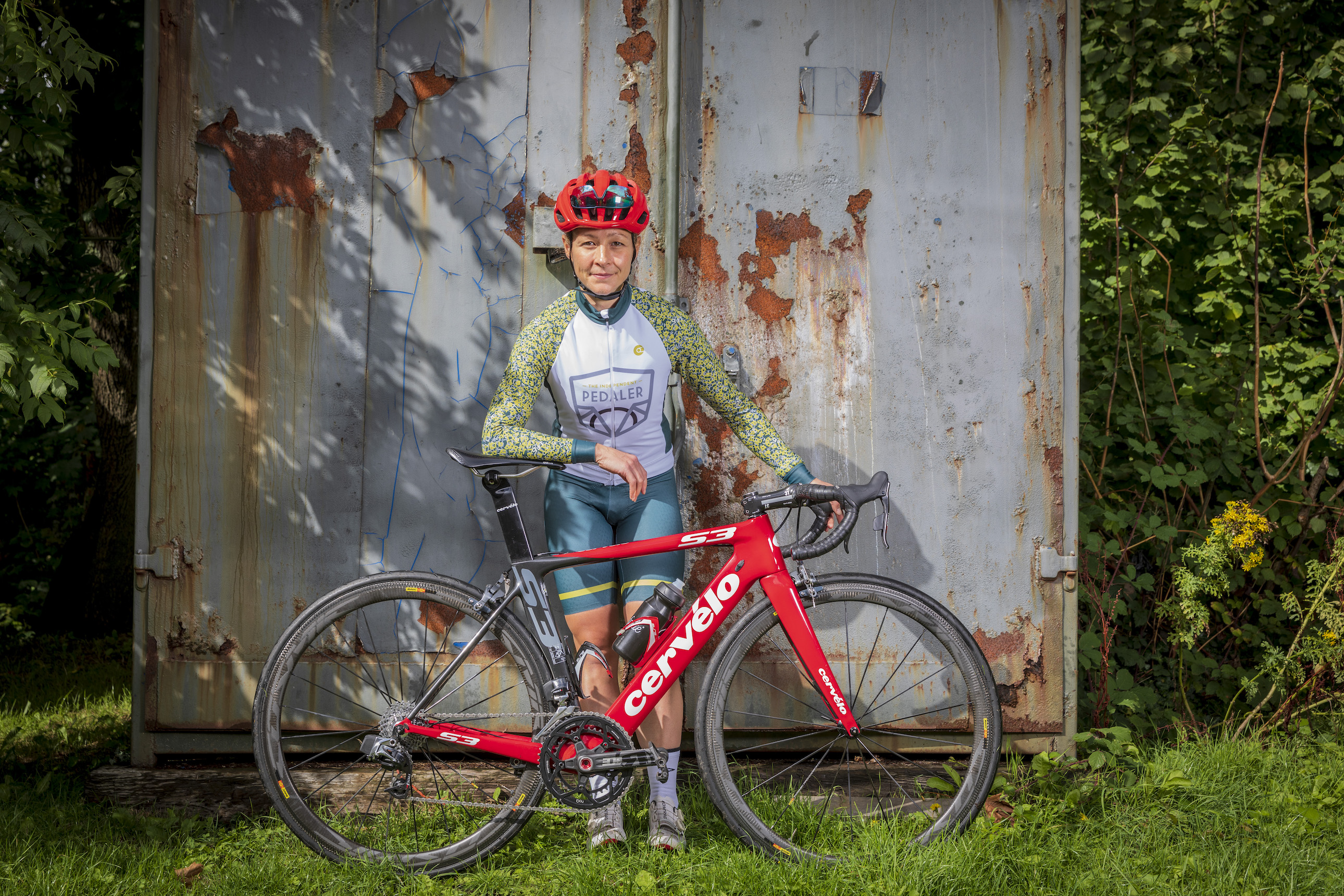
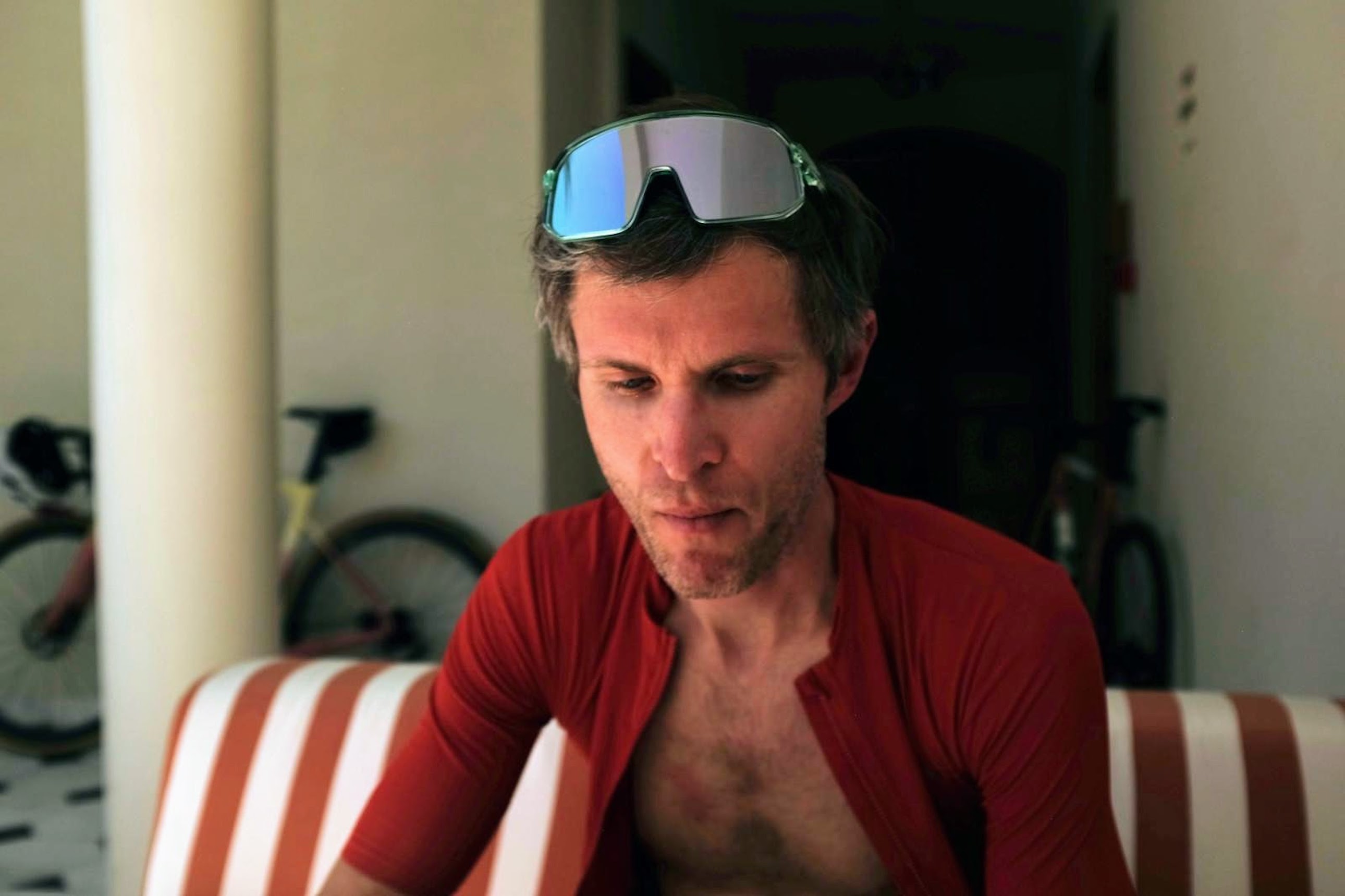
This article was originally published in Cycling Weekly's print edition as part of the long-running MY FITNESS CHALLENGE series.
Jennifer George is not the kind of rider easily deterred from riding her bike. “My background is such that I know the best thing you can do is get back on as soon as possible,” she says, almost by way of introduction. That background includes growing up riding horses around the Scottish countryside and, for the past eight years, as a highly successful bike racer. Today, however, the 39-year-old is telling me about something that happened to her earlier this year that has knocked her confidence so badly she doesn’t know if she will ever again ride alone on her local roads.
“I’d been out for about two-and-a-half hours,” George begins to recount the incident in April that changed everything for her, “and I was less than 20km from home [in southeast London]”. It was a regular training ride on familiar lanes, and she was completing her final interval near Biggin Hill when she noticed an unusually positioned motorcycle. “It was on the slip-road of a junction but clearly not turning off, as it was facing the direction I was going. I sensed the rider and pillion were watching me in their mirror and over their shoulders. Alarm bells – something wasn’t right.”
Seconds after passing the motorcycle, George was overtaken uncomfortably close first by a car and then, on its tail, the bike. “The motorcycle slowed to match my speed and sat right alongside me. My immediate reaction was to fight to get away.” Instinctively she slammed on the brakes. “The motorcyclist braked too,” she says, “but he couldn’t stop as quickly as I had so instead sped ahead, did a U-turn and accelerated back towards me – on my side of the road.” Again George acted on instinct. “I knew I couldn’t outrun them so I rode straight at them – I can’t explain why. At the last second, they veered slightly left and somehow I avoided colliding into the back of the bike.”
Now in survival mode, George sprinted away as the motorcyclist scrambled to U-turn again. “I was shouting, trying to flag down cars – desperate to attract help however I could.” Within seconds the motorcycle was back alongside her and now, with a roundabout in view ahead, George was forced to make a snap decision. “The roundabout was really busy but I didn’t hesitate, I just kept going,” she says. “Briefly I pulled out a gap on the bike but soon it was back alongside me and I was shouting at them to leave me alone.” Finally an escape route appeared: a cafe with people visible outside, and George darted into the car park.
Within minutes, two female motorists pulled in; both had noticed what was happening and made tracks to help. Relieved beyond words to have made it to safety, George now had to gather her thoughts about getting home. “Two cyclists who had stopped for coffee were heading in the same direction and offered to ride with me.” One of the motorists offered to give George a lift, but riding accompanied seemed the best option, both practically and psychologically. “If you don’t get back on, you might never,” she reflects.
One of the first things George did upon getting home was send a WhatsApp message to her club-mates at Dulwich Paragon to tell them what she had been through, by way of warning. “One of my friends messaged me back, ‘What are you up to tomorrow?’ The next day – no ifs, no buts – he came and took me out for a ride.” George fights back tears as she recalls this act of kindness. “It was a really nice moment – realising you’re not on your own, that people really do care.” It’s a precious chink of light in an otherwise dark story: confirmation that, when you need it most, fellow cyclists have got your back.
Get The Leadout Newsletter
The latest race content, interviews, features, reviews and expert buying guides, direct to your inbox!
After six years as a top domestic road racer – twice Scottish champion, in 2018 and 2019 – George had decided to switch to time trialling for 2022. Before the incident, she had been riding on her own outdoors four or five times a week for two to four hours at a time, building towards the National TT Champs. In a stroke those training hours were cut to zero. “I went cold turkey on riding solo outdoors,” she says. “Just like that, it was taken away. Gone.” For the next few weeks she rode only with clubmates and in groups, but an upcoming commitment to participate as a pacer in the Pho3nix Sub-8 challenge in early June upped the impetus to return to her regular regime. “Four weeks later, I rode solo again – it wasn’t a long ride but I did it,” she hesitates. “I was still questioning things. If I hadn’t been part of the Sub-8 team, I’m not sure I’d have done that.”
George describes a slow coming to terms with what had happened, supported by her friends but not yet ready to seek professional help. “I possibly smothered a lot of the emotion,” she admits. “I felt I had to compartmentalise and deal with it later.” On the face of it at least, she was training normally again and her form was building well. But then, on 13 June, her healing peace of mind was shattered all over again. “It was the first time I’d done a longer ride on my own,” George recalls. “I’d felt uneasy about going out that day, but I persuaded myself that because it had happened before, it couldn’t happen again.” It couldn’t happen – but it did. “About 40km from home, on a narrow lane, two cars passed me from the opposite direction, followed by a motorbike and a moped. The first rider’s head turned as he passed, taking a long look at me. I was like, ‘Oh God, what do I do?’” Her worst fears were confirmed as she heard the bikes approaching from behind. “Both passed close, and both of them leered, heads turned, watching me in a really sinister way. I was absolutely terrified – it scared the living daylights out of me.” As the bikes disappeared around the next corner, George pulled into the first driveway she saw and hid in the front garden until she was certain the coast was clear.
This second incident might seem “almost innocuous” compared to the first, George acknowledges, but its compound effect – reopening a psychological wound not yet fully healed – made it even more destructive. The next three weeks were “a dark place”. “I can’t tell you how many times I screamed ‘I hate my bike’. I didn’t want to ride again, I just couldn’t do it.” She had lost not just her hobby but something far more important: her freedom to be at ease in the world. “My bike was my safe, comfortable place; either chilling or training, it was where I did all my thinking, all my decision-making – it’s where I sorted my head out. In one day, that was ripped away from me.”
Remarkably, just one week after this second trauma, George took part in the National Circuit Champs – and won. “It was difficult because I had to ride the course on my own before the race,” she says, “at a time when just the sound of a motorbike was terrifying.” Four days later, she again clamped down her fears to compete in the British National TT Champs, reasserting her resilience by finishing just outside the top 10. And the following weekend she was on the podium at the National 50-mile Champs. Has she been able to enjoy the success? “I’ve had an incredible season,” she chokes back the emotion, “but I feel guilty because I know that I should feel elated about everything I’ve achieved this year in a section of the sport that is not my strength. But I just can’t find the words.”
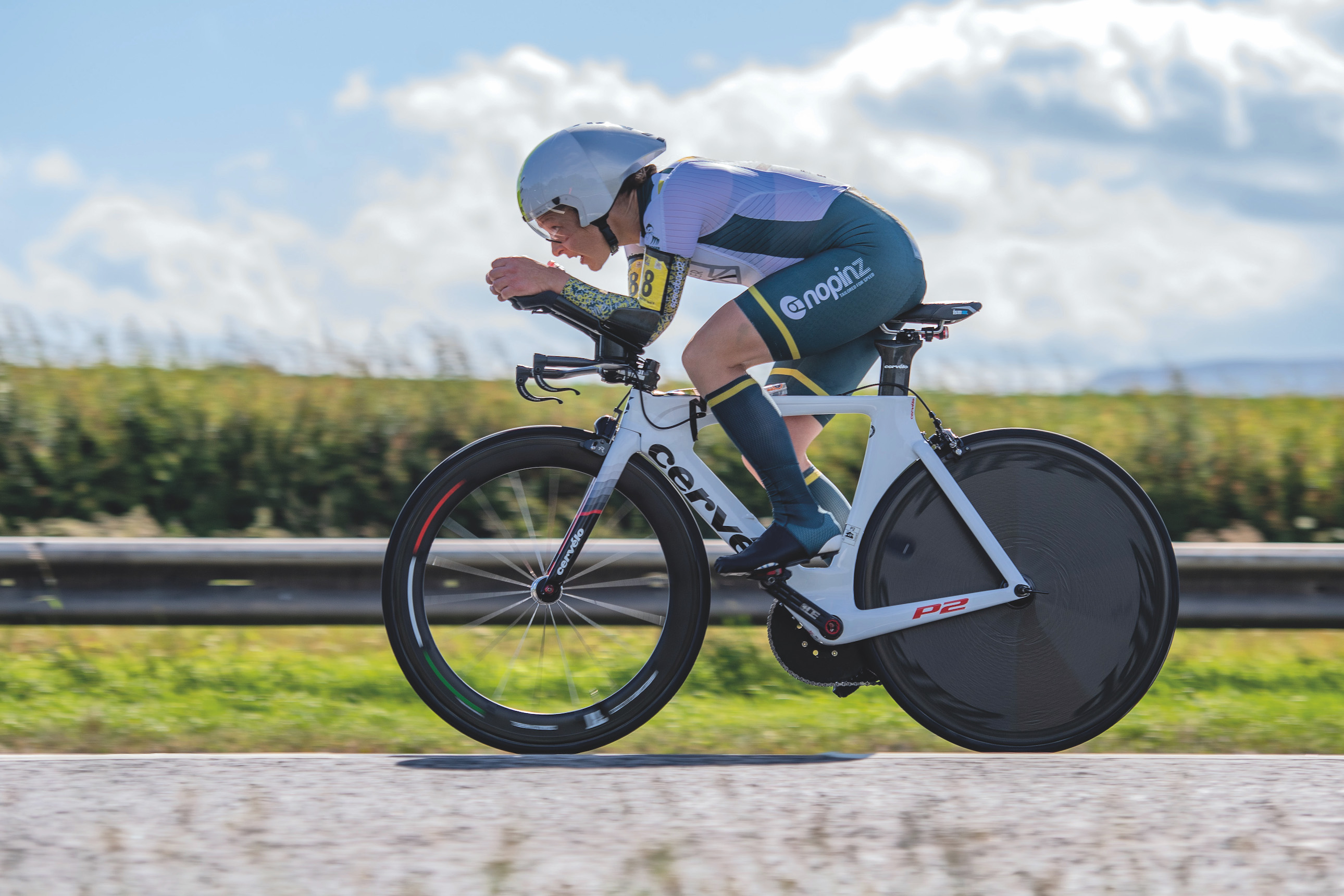
With her racing successes bitter-sweet at best, it is hard to find a positive note on which to end this story. George is continuing to train and coach others, but no longer feels safe to ride solo. “I still cannot and will not be able to ride on my own,” she pauses, then rephrases with greater finality. “I have no wish to ride on my own around here anymore.” Both incidents were reported to the police but George has heard nothing back about resultant investigations or convictions.* Having replayed the pitiless actions of the motorbike riders countless times in her mind, she is convinced they were would-be thieves who were taking a close look at her bike to scope out its value – she is thankful that she was on her well-worn training bike. Others have not been so lucky: George has heard of three other riders in the same vicinity being rammed off their bikes in attempted thefts this summer, one at knifepoint. More and more riders in the area are feeling too afraid to ride alone.
Despite the gut-wrenching ordeals she has been through, George remains defiant and determined to keep racing. The seasoned road racer turned ace time triallist isn’t just going to sit back and let the thugs call time on her ambitions. She continues to train indoors, and outdoor miles are now ridden socially alongside friends and club-mates. “On the positive side,” she smiles, “I have been able to rediscover the joys of riding in a group, not training but actually just riding my bike and having a nice chat.”
*Cycling Weekly contacted the Met Police Cycle Safety Team for comment but received the following response: “[This] is not something Roads and Transport Policing Command can answer as it does not sit within their remit.”
Psychologist's view: 'Be kind to yourself and reach out for help'
CW asked Dr Marianne Trent, clinical psychologist and host of The Aspiring Psychologist Podcast, for her advice on how to process a terrifying experience.
In order to function and go about our everyday lives, we have to feel safe. An event that abruptly shakes our sense of safety can make us feel incredibly vulnerable and full of doubt. At times like this, it is important to remain self-compassionate.
It was your right to get out and cycle; you weren’t out looking for trouble, trouble found you. There can be a tendency to blame oneself, but what happened was not the result of any choices you made. Symptoms of trauma may include sleep changes, feeling ‘on edge’, jumpy or hypervigilant, and replaying the distressing thoughts and images in your mind. To overcome these symptoms, here are some tips:
1. Write down your memories of the incident as a ‘before, during and after’ set of stories. This can help to process what happened and confirm it’s not happening now.
2. Talk to someone you trust who will just listen and not try to fix or change what you are going through. This can help you tolerate thinking about the incident.
3. If your functioning, wellbeing or risk is being adversely affected, it’s important that you speak to your GP or reach out to a qualified psychologist who can offer effective trauma treatments.
This article was originally published in the 4 October 2022 print edition of Cycling Weekly magazine. Subscribe online and get the magazine delivered to your door every week.

Thank you for reading 20 articles this month* Join now for unlimited access
Enjoy your first month for just £1 / $1 / €1
*Read 5 free articles per month without a subscription

Join now for unlimited access
Try first month for just £1 / $1 / €1

David Bradford is features editor of Cycling Weekly (print edition). He has been writing and editing professionally for more than 15 years, and has published work in national newspapers and magazines including the Independent, the Guardian, the Times, the Irish Times, Vice.com and Runner’s World. Alongside his love of cycling, David is a long-distance runner with a marathon PB of two hours 28 minutes. Having been diagnosed with retinitis pigmentosa (RP) in 2006, he also writes about sight loss and hosts the podcast Ways of Not Seeing.
-
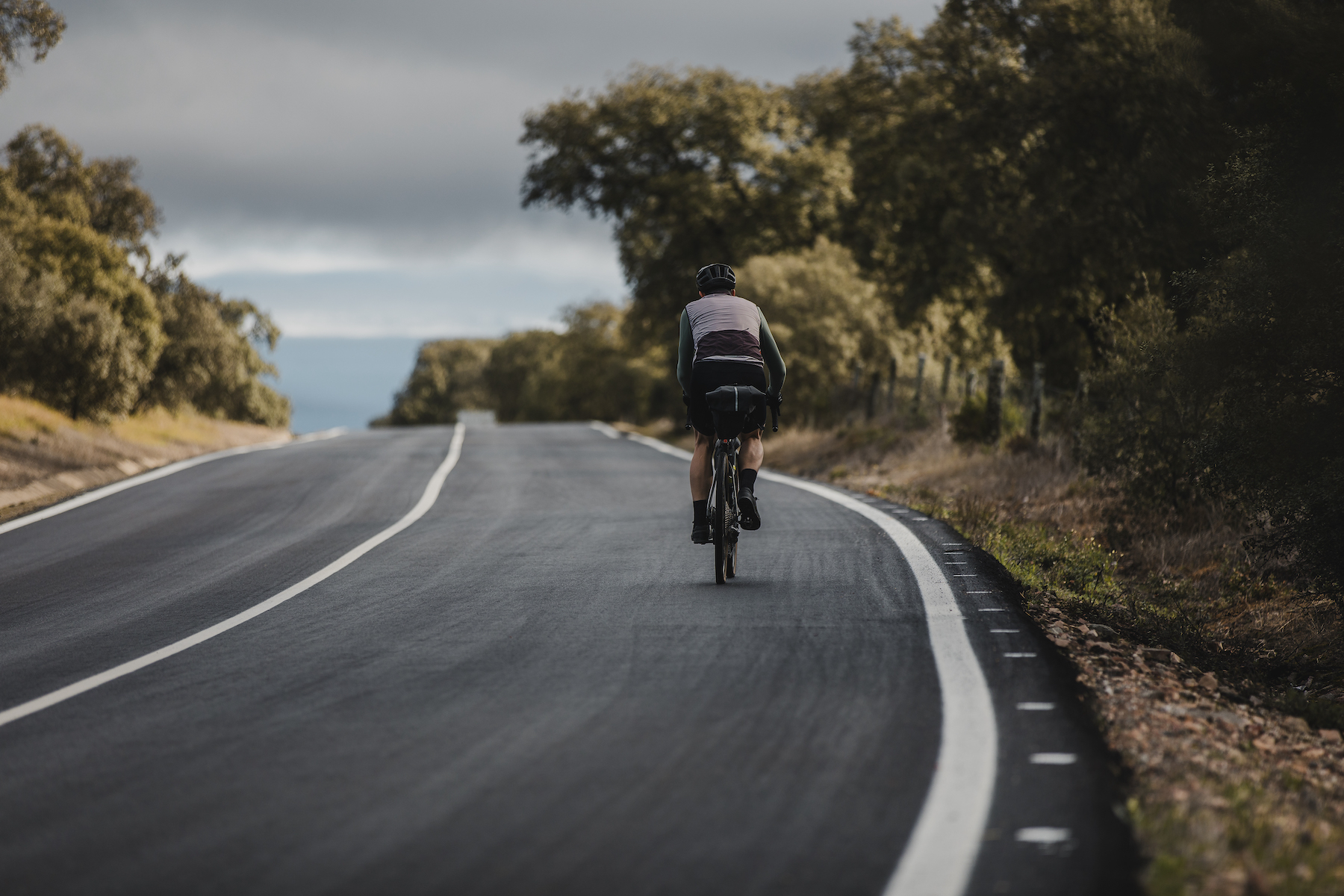 'This is the marriage venue, no?': how one rider ran the whole gamut of hallucinations in a single race
'This is the marriage venue, no?': how one rider ran the whole gamut of hallucinations in a single raceKabir Rachure's first RAAM was a crazy experience in more ways than one, he tells Cycling Weekly's Going Long podcast
By James Shrubsall
-
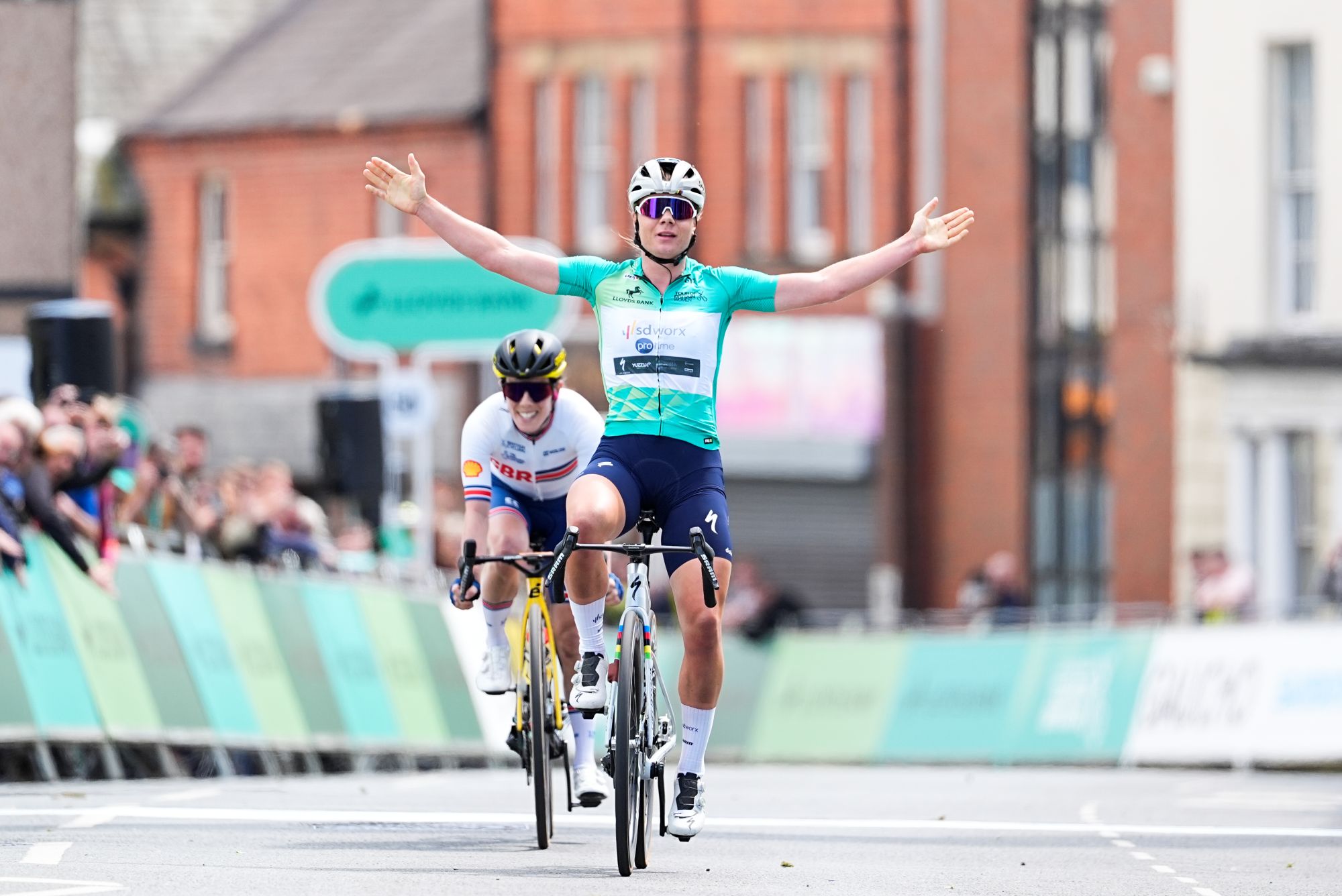 Full Tour of Britain Women route announced, taking place from North Yorkshire to Glasgow
Full Tour of Britain Women route announced, taking place from North Yorkshire to GlasgowBritish Cycling's Women's WorldTour four-stage race will take place in northern England and Scotland
By Tom Thewlis
-
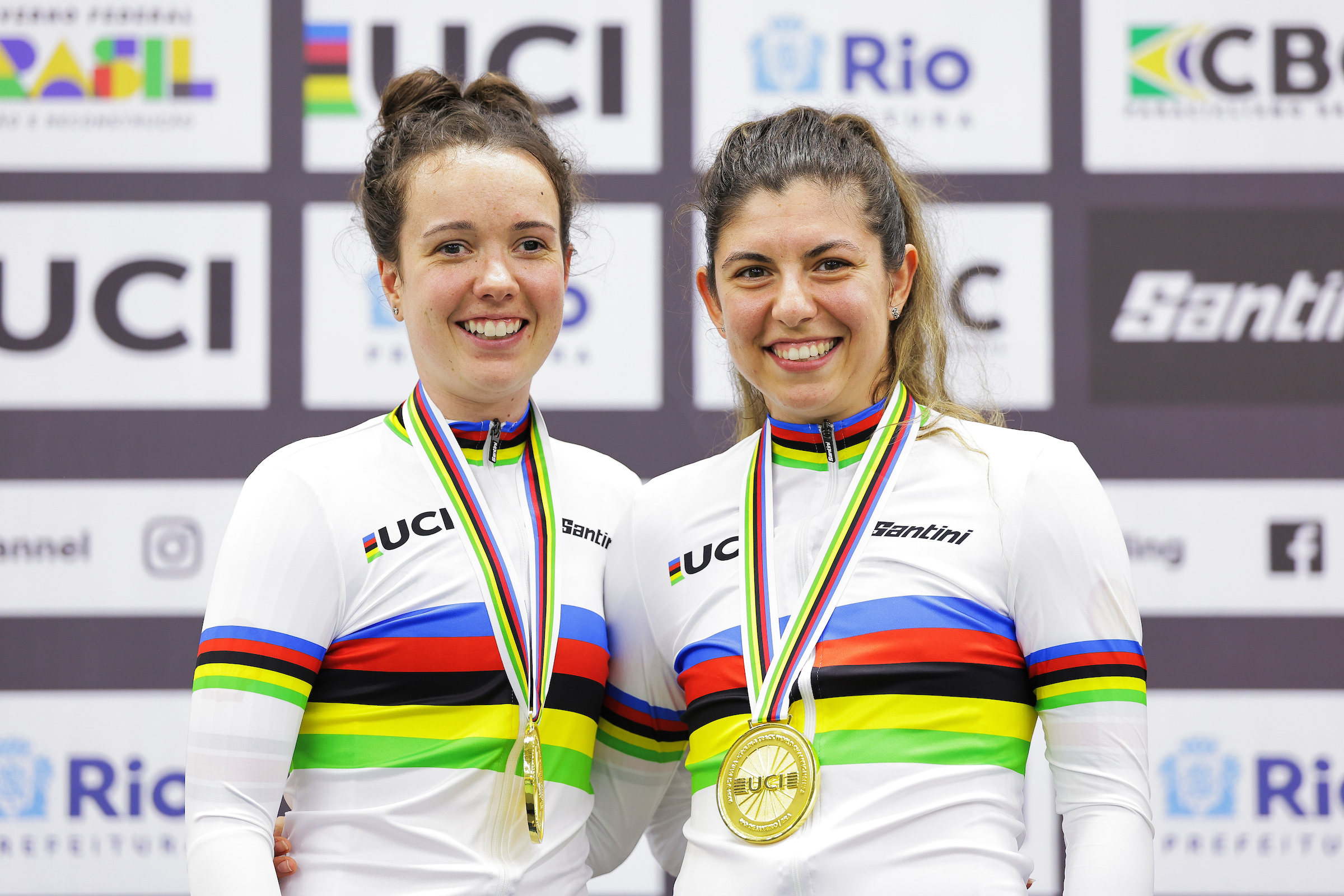 'Back then I was on the edge of life – but now I'm a multi world champion': Para-cyclist Lizzi Jordan's golden comeback from near-fatal food poisoning
'Back then I was on the edge of life – but now I'm a multi world champion': Para-cyclist Lizzi Jordan's golden comeback from near-fatal food poisoningKeen equestrian Lizzi Jordan was riding high until a freak illness changed her life forever. Now, having swapped reins for handlebars, she is not only back in the saddle but winning on the world stage
By David Bradford
-
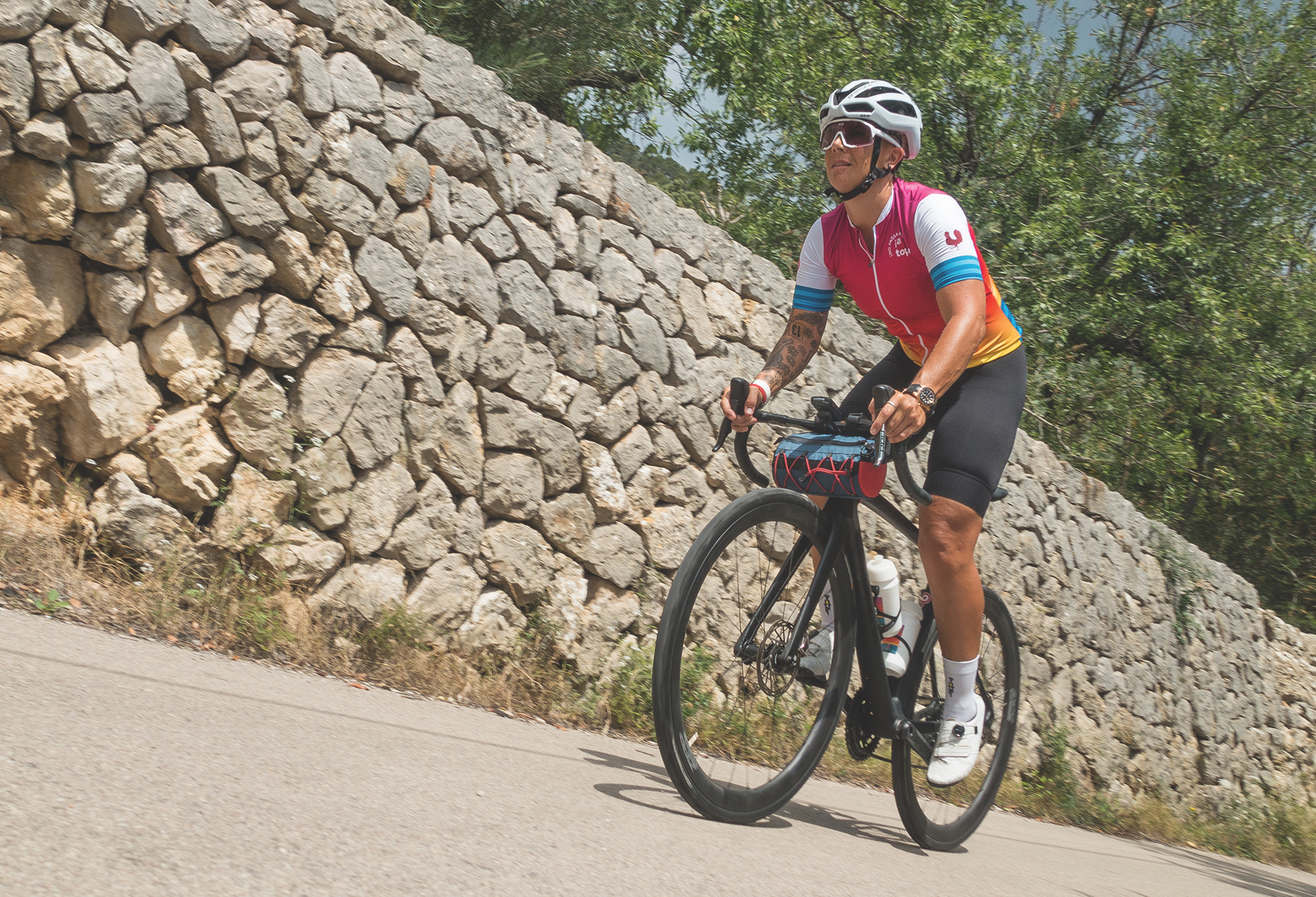 'One transplant, two cancer surgeries – I get knocked down but I get up again': The champion rider with next-level resilience
'One transplant, two cancer surgeries – I get knocked down but I get up again': The champion rider with next-level resilienceFacing repeated risks to her life from kidney failure, Ottilie Quince is determined to keep bouncing back – on and off her bike
By Chris Marshall-Bell
-
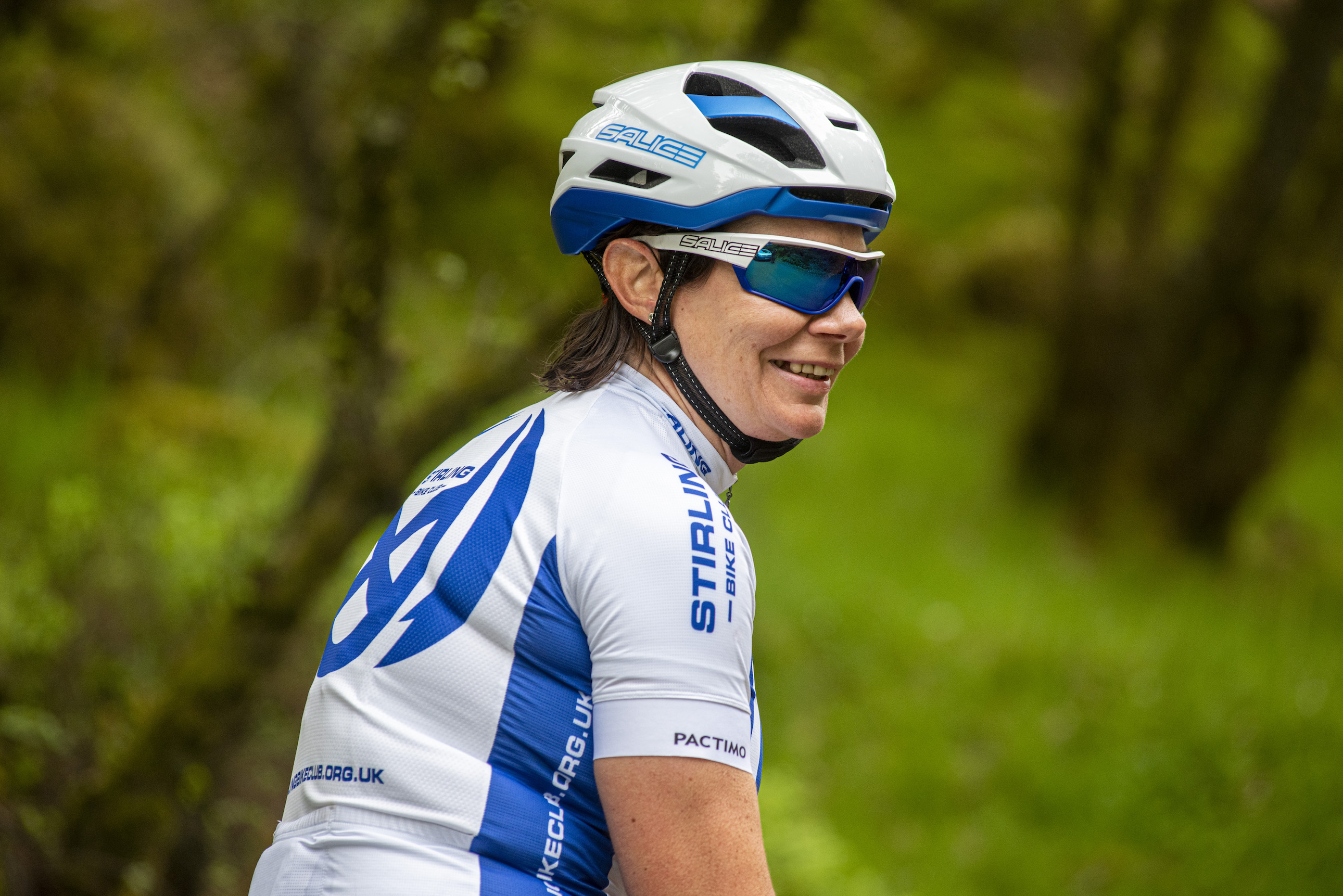 'I thought I'd never be pain-free again – but now I'm cherishing every ride': The comeback from a devastating hit-and-run crash
'I thought I'd never be pain-free again – but now I'm cherishing every ride': The comeback from a devastating hit-and-run crashLong-distance record-setter Christina Mackenzie tells us about her biggest challenge yet – returning to racing after a collision in which she was left for dead
By Trevor Ward
-
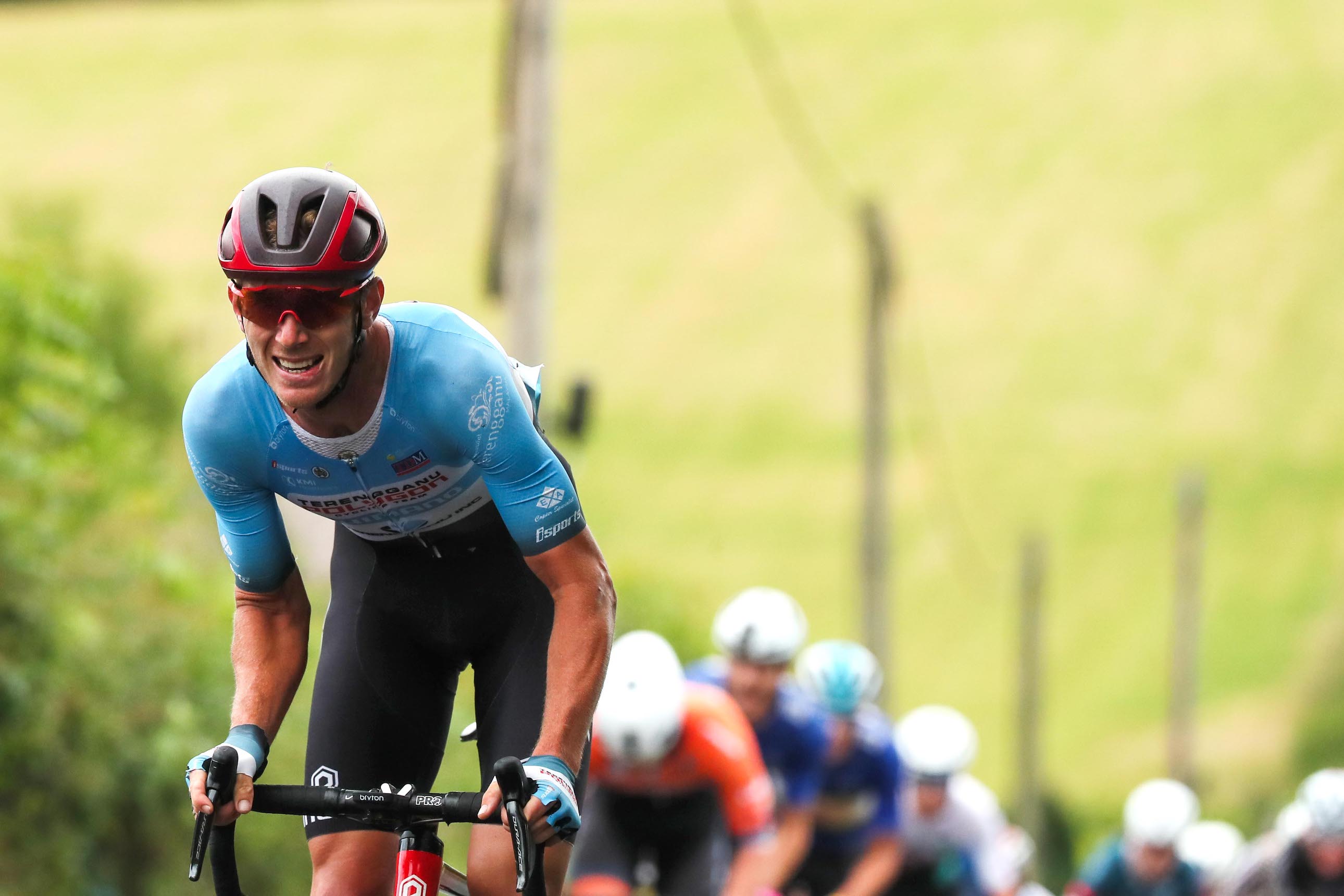 'My skull was cracked from ear to ear, a shard of glass just missed my artery': The journey back to the podium after head-on smash
'My skull was cracked from ear to ear, a shard of glass just missed my artery': The journey back to the podium after head-on smashBouncing back to the pointy end of racing just three months on from a crash almost too horrific to fully describe, Jesse Ewart’s may be the greatest comeback story you have never heard
By Chris Marshall-Bell
-
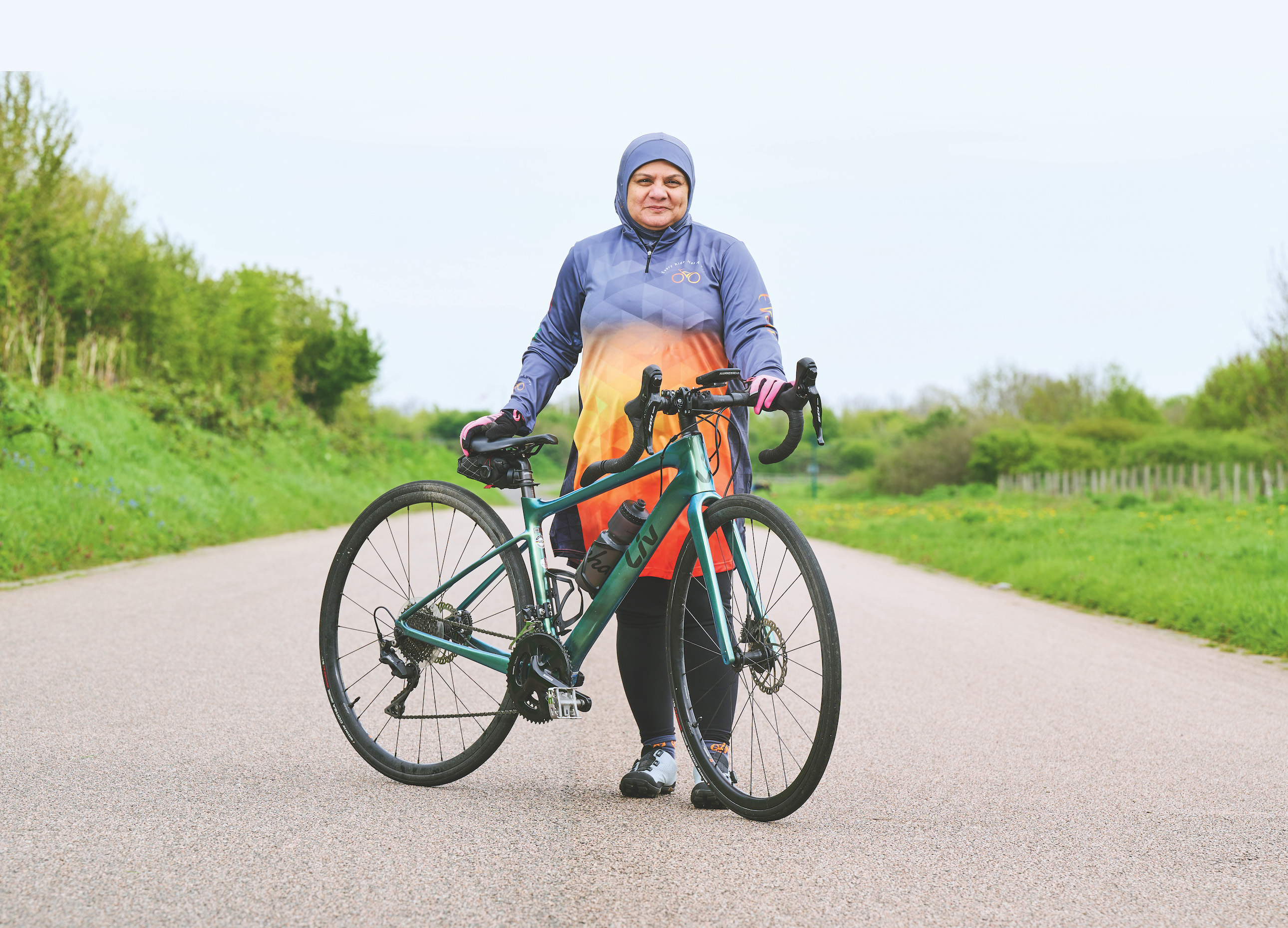 'Whatever happens, I'm starting the club': Iffat Tejani on realising her bucket list dream of opening up cycling to Muslim women
'Whatever happens, I'm starting the club': Iffat Tejani on realising her bucket list dream of opening up cycling to Muslim womenHow a life-and-death diagnosis set free a life-long ambition to break down barriers and rally a community onto bikes
By David Bradford
-
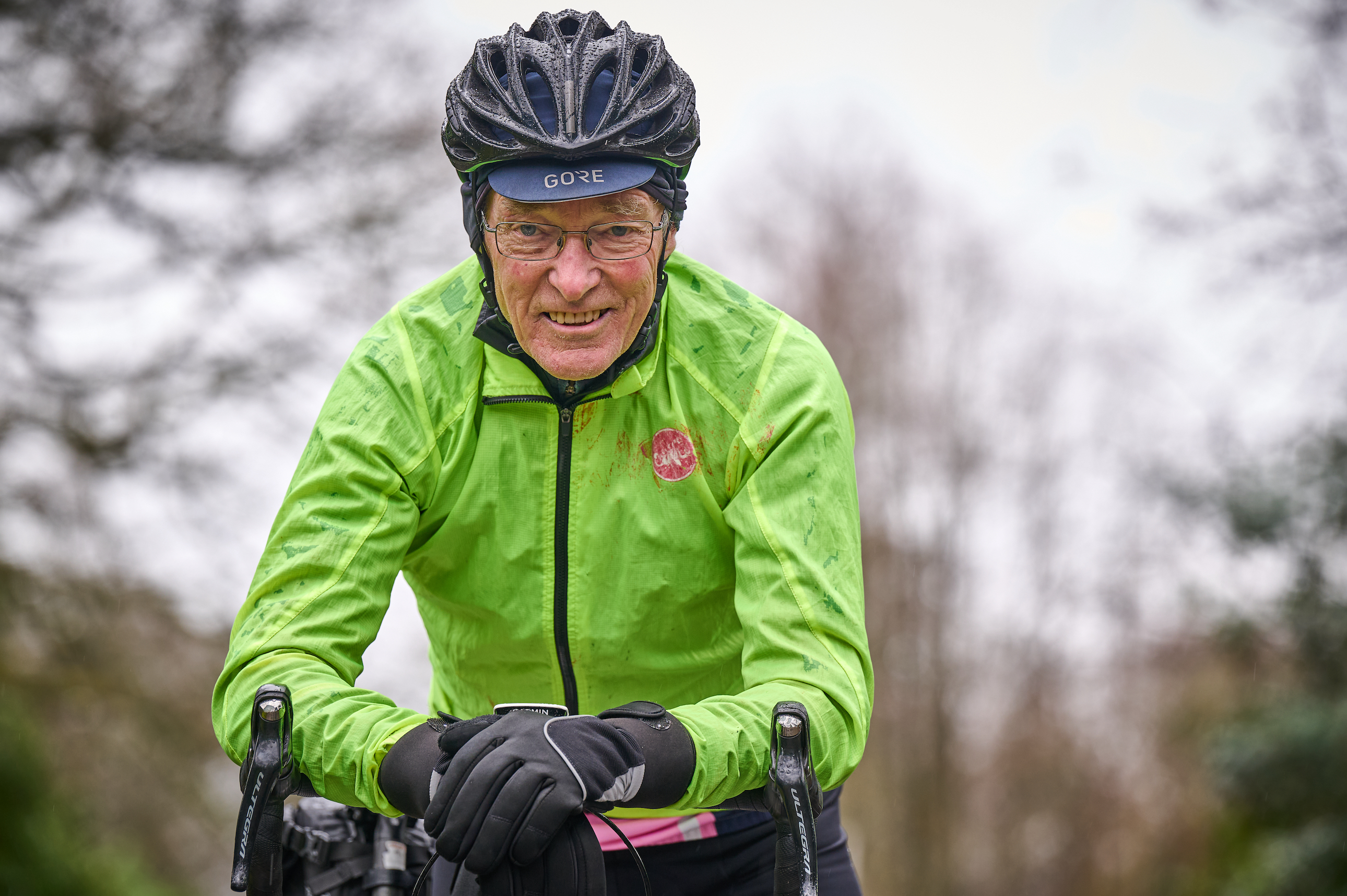 'Cycling's been a life-saver': The record-breaking 87-year-old who still rides 150 miles a week
'Cycling's been a life-saver': The record-breaking 87-year-old who still rides 150 miles a weekDowning his gardening tools, pensioner Martin Harvey got on his bike and set about writing his name into the long-distance record books
By David Bradford
-
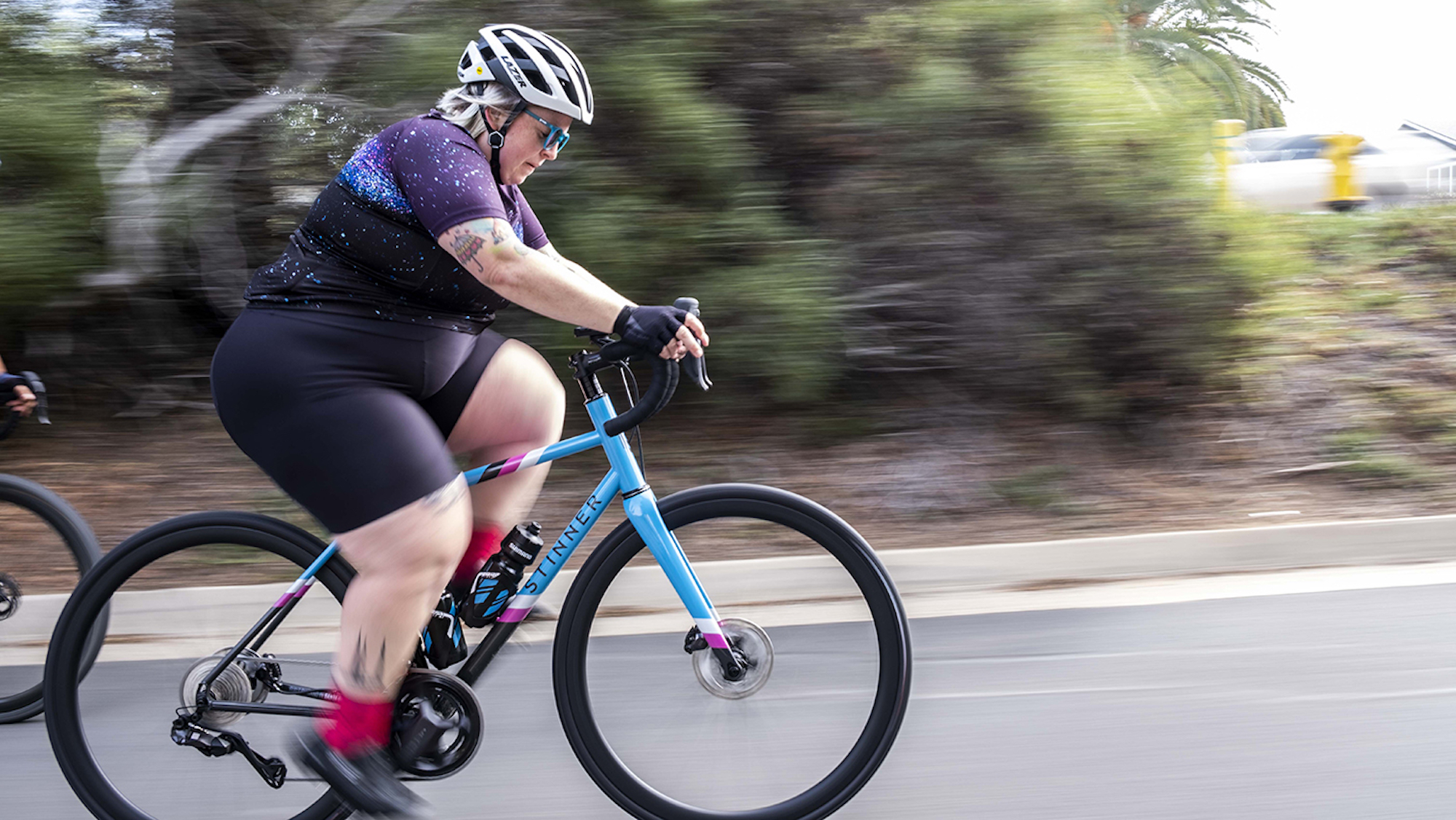 'I'm fat – and I'm OK with that': The size-inclusion campaigner seeking to make cycling safe and accessible for everyone
'I'm fat – and I'm OK with that': The size-inclusion campaigner seeking to make cycling safe and accessible for everyoneAfter struggling to find riding kit in her size, Marley Blonsky made it her life’s mission to make cycling more accessible and welcoming to riders of all shapes and sizes
By David Bradford
-
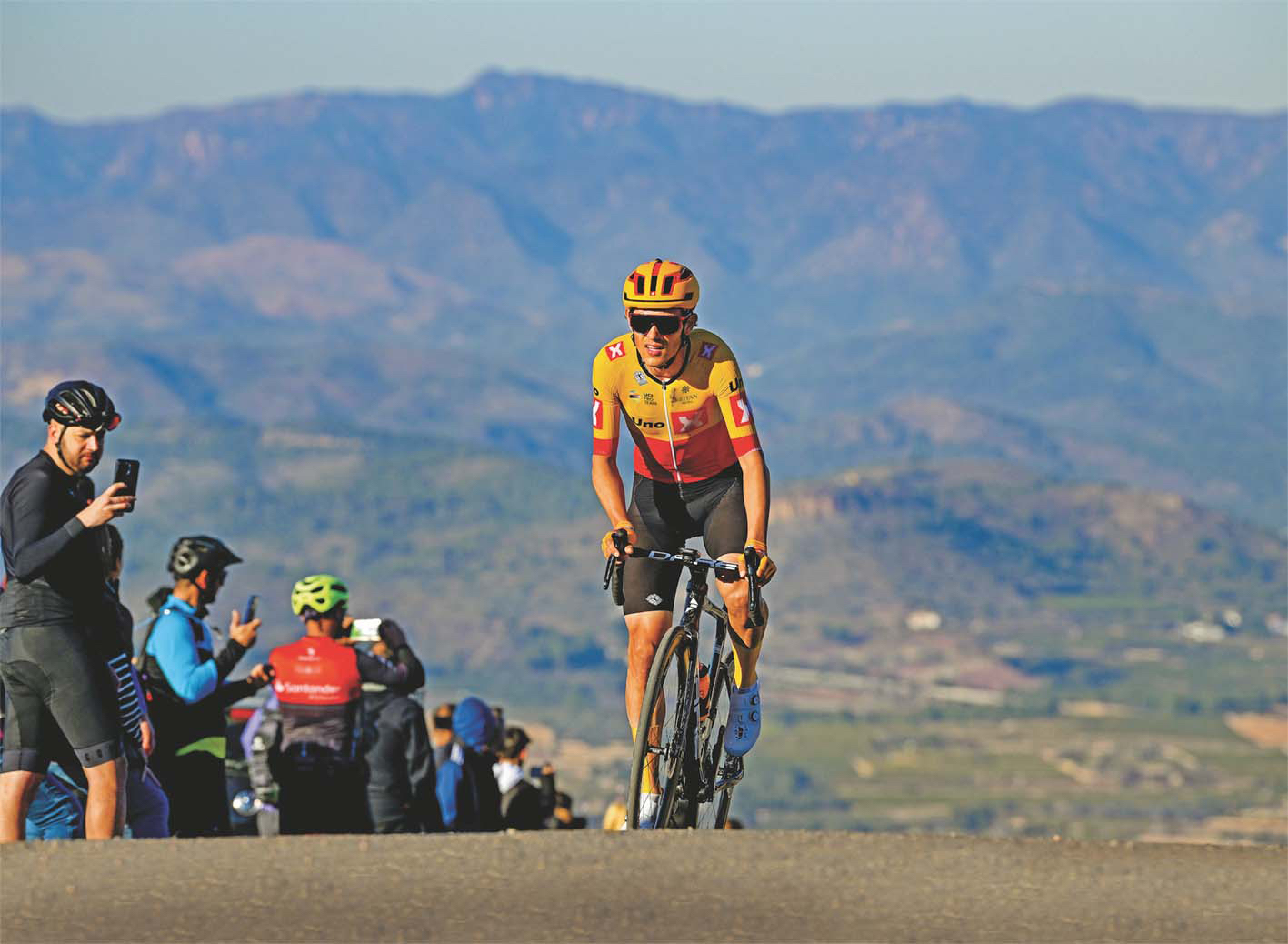 Saved by a doping test: The pro rider treated for cancer after abnormal blood result
Saved by a doping test: The pro rider treated for cancer after abnormal blood resultWhen his team doctor called about an abnormal test result, Torstein Træen could not believe what was happening – but it would turn out to be a potentially life-saving red flag
By Chris Marshall-Bell